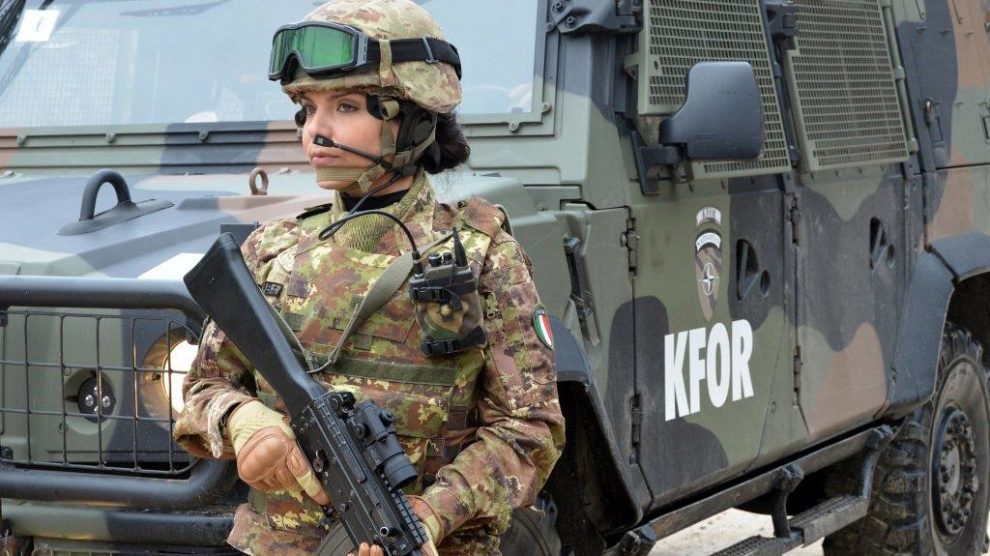Escalation averted. Following hours of tensions and pressure from Brussels and Washington, the government of Kosovo decided to postpone the implementation of new rules that would have forced the inhabitants of Serb-majority areas to adopt Kosovo-issued number plates by a month.
- These rules were supposed to take effect at midnight on Monday, August 1st. On Sunday, ethnic Serbs in the north barricaded the streets and shooters fired shots in protest.
- The situation seems partially defused, at least for now. But the issue is symbolic: Serbs in Kosovo refuse to recognise the local authorities, and the number plates issue is only a flashpoint.
A quick recap. Kosovo unilaterally declared independence from Serbia in February 2008, almost a decade after it broke away following a bloody war in which NATO was directly involved. To this day, relations between the inhabitants (who are Serbian and predominantly Albanian) have yet to normalise.
- That’s also because the Kosovan territory is a geopolitically tense spot, rife with anti-Western forces. The effects of the Ukrainian invasion could also be reflected in the Western Balkans.
- Some Serbian shooters bore the letter Z, the same marking used by the Russian troops assigned to the assault against Ukraine.
- Tensions between Kosovo and Serbia continue even though the two sides committed to an EU-sponsored dialogue to resolve long-standing issues.
The feelings on the ground. As hundreds of ethnic Serbs blockaded two key border crossings with Serbia, forcing the police to close the crossings for security reasons, NATO described the situation as “tense.”
- The Atlantic Alliance-led mission in Kosovo, KFOR (in which Italy is the biggest partner), said it was “prepared to intervene if stability is jeopardised.”
- The Serbian president, Alexandar Vucic, said he expected tensions to “defuse” after the number plate rules were postponed. However, he is well aware of similar protests in October 2021, when the rules were put forward.
The Russian connection. Kosovo’s President, Vjosa Osmani, recently spoke with the Washington Post about the history of Russian influence in the region. She warned that Vladimir Putin’s goal is to expand the conflict to other parts of the world, as his ultimate aim has always been the destabilisation of Europe. Which makes the Western Balkans a suitable springboard.
The expert’s take / 1. Readers must recall that just last year Moscow had expressed opposition to Bosnia and Herzegovina’s prospective NATO membership, said Matteo Bressan, professor of International Relations at SIOI and LUMSA and longtime observer of the Balkans.
- “The Russian offensive in Ukraine has strengthened the will of both Kosovo and BiH to join the Atlantic Alliance to preserve their security. Especially in light of the attempts to destabilise conducted by Moscow, when Montenegro and the Republic of North Macedonia were granted NATO membership, in 2017 and 2020 respectively.”
The expert’s take / 2. Piero Fassino, President of the Foreign Affairs Commission of the Chamber of Deputies, believes that Europe has been integrating Balcanic countries into the Euro-Atlantic framework way too slowly.
- Since the dispute began in the Nineties, the West made two choices: deploying NATO interposition forces, i.e. KFOR, and opening a negotiating channel between the EU and the Western Balkans.
- However, he argues, “the slowness and weariness of the negotiations have brought us to a crossroads. Either the EU takes the initiative by opening negotiations in Brussels and keeping them open until a solution is found, or we will continue to wait until it is too late.”
- Negotiations with Serbia and Montenegro “are proceeding slowly,” those with Albania and North Macedonia “have finally found an outlet.” However, Bosnia and Kosovo “are still stuck at a generic prospect of inclusion.”
- This delay caused the Balkan public opinion to become frustrated over the promise of European integration, which leaves Russia and the like with ample leeway to exert influence.




